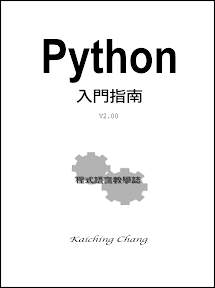
encrypt07.py
# 使用 randint()
import random
# 定義 Encrypt 類別
class Encrypt:
def __init__(self):
self.setcode()
def setcode(self):
# 取得 a 、 b 值
a = 0
b = 0
while a % 2 == 0:
a = random.randint(0, 9)
b = random.randint(0, 9)
# 利用公式建立密碼表
self.code = ""
c = "a"
i = 0
while i < 26:
x = c
y = ord(x) * a + b
m = y % 26
self.code += chr(m + 97)
c = chr(ord(c) + 1)
i += 1
def getcode(self):
return self.code
# 編碼的方法
def toEncode(self, str):
# 暫存編碼結果的字串
result = ""
# 利用迴圈走完參數字串的所有字元
for c in str:
# 判斷該字元是否為英文小寫字母
# 若是英文小寫字母就進行編碼轉換
c1 = ord(c) >= 97
c2 = ord(c) <= 122
if c1 and c2:
m = ord(c) - 97
result += self.code[m]
else:
result += c
# 結束回傳編碼過的字串
return result
# 解碼的方法
def toDecode(self, str):
# 暫存解碼結果的字串
result = ""
i = 0
# 第一層迴圈逐一取得每一個字元
while i < len(str):
# 判斷該字元是否為英文小寫字母
# 若是英文小寫字母就進行解碼轉換
i1 = ord(str[i]) >= 97
i2 = ord(str[i]) <= 122
if i1 and i2:
j = 0
# 第二層迴圈尋找該字元在密碼表中
# 的索引值,加上 DIFF 就可轉換
# 回原本的字元
while j < len(self.code):
if str[i] == self.code[j]:
result += chr(j + 97)
j += 1
else:
result += str[i]
i += 1
# 結束回傳解碼過的字串
return result
# 測試部分
if __name__ == '__main__':
e = Encrypt()
print()
print(e.getcode())
s1 = "There is no spoon."
print("Input : " + s1)
s2 = e.toEncode(s1)
print("Encode: " + s2)
s3 = e.toDecode(s2)
print("Decode: " + s3)
print()
# 檔名: encrypt07.py
# 作者: Kaiching Chang
# 時間: July, 2014exercise1901.py
from random import shuffle
while True:
answer = [chr(i) for i in range(48, 58)]
shuffle(answer)
answer = answer[0:4]
if answer[0] != "0":
break
def ab_counter(answer, guess, ab):
a = 0
b = 0
for i in guess:
if i in answer:
if guess.index(i) == answer.index(i):
a += 1
else:
b += 1
ab[0] = a
ab[1] = b
def find_number(array):
for i in array:
if array.count(i) > 1:
return True
return False
if __name__ == "__main__":
abcounter = [0, 0]
times = 0
while True:
times += 1
guess = input(": ")
if len(guess) != 4:
print("Wrong length!!")
continue
if find_number(guess):
print("Repeating digits!!")
continue
ab_counter(answer, guess, abcounter)
if abcounter[0] == 4:
print("Right!!")
break
else:
print(str(abcounter[0]) + "A" + str(abcounter[1]) + "B")
print("You guess " + str(times) + " times.")
# 檔名: exercise1901.py
# 作者: Kaiching Chang
# 時間: July, 2014exercise1902.py
from random import shuffle
class GuessGame:
def __init__(self):
self.set_game();
def set_game(self):
while True:
self.answer = [chr(i) for i in range(48, 58)]
shuffle(self.answer)
self.answer = self.answer[0:4]
if self.answer[0] != "0":
break
self.times = 0
self.a = 0
self.b = 0
if __name__ == "__main__":
g = GuessGame()
print(g.answer)
# 檔名: exercise1902.py
# 作者: Kaiching Chang
# 時間: July, 2014the end

沒有留言:
張貼留言